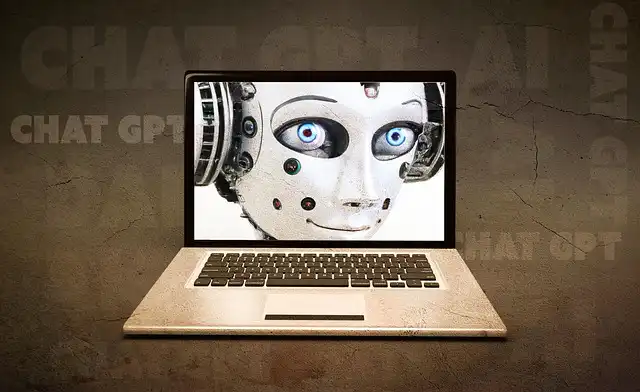AI on TV: ‘Morning Show,’ ‘Black Mirror,’ and the Future

AI's impact on television explored, from 'The Morning Show' to 'Black Mirror' and 'Alien: Earth,' reflecting anxieties about technology, deepfakes, and corporate exploitation. The series highlights AI's societal impact.
” The Morning Show,” with its addiction on the recent past– the #MeToo motion, the pandemic, the insurrection– as opposed to the not-too-distant future, is in some aspects “Black Mirror”‘s inverse. Offered this ripped-from-the-headlines propensity, it was maybe unpreventable that A.I. would eventually show up. In the new season, it’s dealt with as a reoccuring, shapeshifting risk. The Apple TV dramatization, which started as a workplace soap regarding an A.M. information program, has actually slowly widened its scope to encompass the imaginary network’s fight for significance in an overcrowded media ecological community. Executives’ preliminary efforts aren’t appealing. As the 2024 Olympics technique, the broadcaster develops buggy, A.I.-powered real-time translations of its stars’ discourse on the Gamings in a range of languages. The feature confirms so undependable that it’s shelved– though not prior to among the anchors gets a lesson on the danger of deepfakes. Later, a network chief makes the error of using the firm’s internal chatbot as a type of specialist. Her secrets are after that disclosed in a sequence that’s optimal “Early morning Show”: luxurious, impractical, and unapologetically camp.
AI’s Rise on ‘The Morning Show’
Till just recently, the most trustworthy resource of clever thought experiments regarding ascendant modern technologies on television was the Netflix series “Black Mirror.” The anthology drama débuted in 2011, and its maker, Charlie Brooker, quickly established his rate of interest in the assurance and risks of artificial intelligence. The 2023 episode “Joan Is Horrible”– which posits a nightly, A.I.-generated collection that mines a regular female’s experiences and after that villainizes her for customers’ pleasure, with a simulation of the starlet Salma Hayek in the starring role– ended up being a talking factor during the Hollywood strikes as a worst-case scenario of studio indifference to ethics and high quality. One union participant called it a “documentary of the future”: the type of project a deep-pocketed banner like Netflix could go for if it were unconfined from all commitments to subjects, employees, and target markets. A.I. was a sticking point in both the W.G.A. and SAG-AFTRA arrangements– yet it is already replacing the labor of animators, costume developers, and special-effects musicians. A decade prior, a “Black Mirror” episode called “Be Right Back” adhered to a widow that comes to be taken in by her communications with an automaton configured with the memories of her dead husband. I considered the episode this summer season, while reviewing a news story regarding the mom of a Park shooting target who makes use of A.I. to have her murdered boy’s voice claim the words “I enjoy you, Mommy.”
‘Black Mirror’ and AI Warnings
It’s unfortunate that, simply as A.I. has actually absolutely permeated American life– and begun to be accountable for individual disasters of the type “Black Mirror” as soon as stood out at showing– the collection has actually dropped right into creative bankruptcy. And in the Hollywood witticism “The Studio,” a manufacturing business’s discovery that one of its tasks will rely on A.I. computer animation causes significant reaction.
All of a sudden, the 2025 series that networks modern A.I. stress and anxieties most efficiently is a sci-fi drama embeded in the twenty-second century, in an universe where unnaturally intelligent flunkeys have actually already become obsolete. The “Alien” film franchise business has long been kept in mind for its populist, cyberpunk-esque perspective; in the original motion picture, the main personalities are interstellar merchant mariners deemed expendable by their company. The brand-new FX innovator collection “Alien: Planet” renders the wickedness of corporate exploitation yet more specific: its chief antagonist, a haughty man-child who calls himself Child Kavalier (Samuel Blenkin), is a trillionaire without any compunctions concerning tricking the prone or threatening the earth to progress his own schedule.
AI Anxiety in Sci-Fi: ‘Alien: Earth’
In 2025, A.I. appears to turn up on television nearly as typically as it does in reality. On the hospital-mockumentary sitcom “St. Denis Medical,” a curmudgeonly physician dislikes the unerring faith that a patient has in his A.I. analysis device. In the high-school-set comedy “English Instructor,” an idealistic instructor campaigns for “wise” wastebasket, just to discover that the brand-new camera-equipped containers belong to a sophisticated data-harvesting plan. And in the Hollywood satire “The Workshop,” a manufacturing company’s discovery that one of its tasks will depend on A.I. computer animation triggers major backlash.
It’s regrettable that, simply as A.I. has actually truly penetrated American life– and started to be liable for private catastrophes of the kind “Black Mirror” when succeeded at depicting– the series has dropped into creative insolvency. Suddenly, the rise of A.I. is less an existential hazard than a pretense for a boring romance.
AI Penetration and TV’s Response
The means A.I. is bursting partnerships, institutions, and reality itself has actually given our current minute the air of scientific research fiction: every day brings new reports of chatbots ending up being things of charming obsession, pressing customers towards psychotic breaks, or encouraging teen-agers to kill themselves. As commentators on both sides of the A.I. divide often keep in mind, either as a promise or a threat, this is the worst the innovation will certainly ever be.
All of a sudden, the 2025 collection that channels contemporary A.I. anxiousness most efficiently is a sci-fi dramatization established in the twenty-second century, in a cosmos where synthetically smart flunkeys have currently become out-of-date. The method A.I. is bursting connections, organizations, and reality itself has actually provided our present minute the air of scientific research fiction: every day brings brand-new reports of chatbots coming to be objects of charming fascination, pressing customers towards psychotic breaks, or motivating teen-agers to eliminate themselves.
I assumed of the episode this summertime, while reading an information story about the mother of a Parkland shooting victim who makes use of A.I. to have her killed son’s voice claim the words “I love you, Mommy.”
Corporate Exploitation and the AI Era
The globe of “Alien: Earth” has no practical government; after the collapse of democracy, five megacorporations took control of. Technical wonders do little to alleviate the hardscrabble presence of a lot of workers; sixty-five-year labor agreements are the standard. Space beings aside, the show’s representation of internecine battles in between unsympathetic, self-involved plutocrats at the cost of basically every person else does not really feel as well much removed from our very own circumstance. In May, the C.E.O. of a prominent real-life A.I. firm predicted the removal of fifty percent of all entry-level white-collar work by 2030– also as talent wars within the area enabled top scientists to command nine-figure pay plans. The comparison has actually prompted doomer jokes concerning an approaching “irreversible underclass.” On the other hand, various large language versions have soaked up huge swaths of information, occasionally via illegal means, and A.I.-generated images and video clips have introduced a frightening new era in which individuals have less control than ever over their likenesses and those of their liked ones. This month, the release of the text-to-video application Sora 2 required the daughters of Robin Williams and Martin Luther King, Jr., to plead with the general public to stop sending them deepfakes of their dads.
Sea lampreys– intrusive, leechlike creatures that as soon as almost destroyed the Wonderful Lakes’ angling economy– are kept in check by a small U.S.-Canadian program. Will it survive Trump’s slash-and-burn campaign?
Some programs have taken an extra supportive method. The Apple television dramedy “Murderbot,” based upon Martha Wells’s book series, attempts to see points from the viewpoint of its titular hero. The tale takes place on a far-off world, where the self-named Murderbot (Alexander Skarsgård) is charged with guaranteeing the safety and security of a team of researchers researching unpredictable neighborhood fauna. While the researchers quarrel with one another regarding how much self-respect to accord the android– is he a maker or a slave?– Murderbot obeys their regulations with the sullenness of a put-upon teen-ager and snarks to himself regarding their exhausting “exchanges of fluids and words.” (He’s not wrong about their insipidity, but he’s just as plain as the objects of his mockery.) The twist is that Murderbot isn’t especially interested in aiding or destroying the people around him; he ‘d merely prefer to fritter away his off-duty hours bingeing cheesy space operas. It is his Bartleby-esque recalcitrance, in fact, that makes him feel most human.
1 AI on TV2 art and technology
3 Artificial Intelligence
4 Black Mirror
5 deepfakes
6 Media and Sport
« Murakami x Louis Vuitton: Artycapucines Collection at Art BaselFrench Crown Jewels Theft: History and the Empresses »
